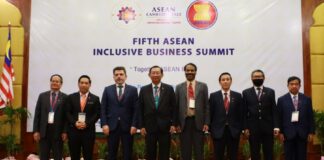PUTRAJAYA, Sept 7 — The National Circular Economy Council (NCEC) to manage solid waste has been established to accelerate the transition of solid waste management from a linear economy to a holistic circular economy.
Local Government Development Minister Nga Kor Ming, when announcing the matter at a press conference here today, said the establishment of the council was approved during a Cabinet meeting on Aug 23 and was a high-impact initiative for the country’s solid waste management.
“The transition to a circular economy can optimise the life cycle of products and increase the use of resources to reduce the amount of waste produced,” he said.
According to Nga, waste management based on a linear economy, in which raw materials are used to produce a product that is then discarded at a landfill site after use, has an environmental impact in addition to depleting existing resources and is unsustainable.
He said NCEC would focus on six elements to support the circular economy ecosystem, including developing markets and demand for recycled materials and designing products that can optimise the life cycle through reuse, recycling and environmental friendliness.
“Focus will also be given to promoting the segregation of waste at source and improving the solid waste collection system, providing infrastructure facilities and appropriate incentives, developing an integrated data system and creating a public, private and community collaboration platform,” he said.
Nga also said that the Local Government Development Ministry (KPKT) was in the midst of formulating a blueprint as the primary reference for stakeholders, and the NREC would be responsible for coordinating and monitoring the implementation of the action plan.
He said that adopting a circular economy approach to solid waste management also has the potential to boost community economic activities through the creation of new business opportunities when the demand and market for recycled goods increase.
“More employment opportunities will also be created in the circular economic value chain, such as in design, recycling activities, and remanufacturing,” he said.
Nga said that in 2015, the waste cycle rate was only 15 per cent, but it has since increased to 33.17 per cent, while the National Solid Waste Management Department has set a target of 40 per cent by 2025.
“We are still below par and have yet to achieve the international benchmark, which is between 60 and 70 percent; therefore, we want to expedite the implementation of this initiative, and we need everyone to come aboard,” he added.



















